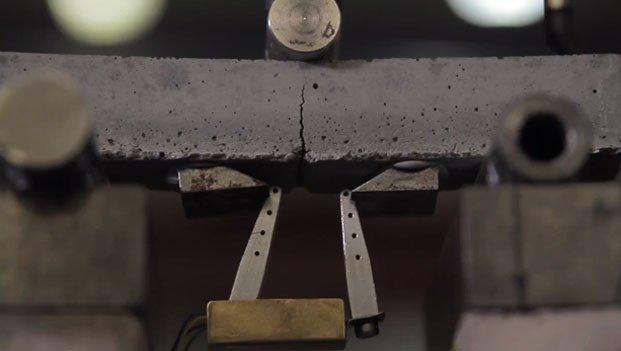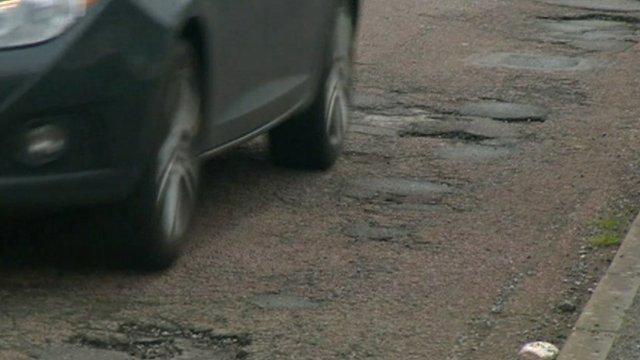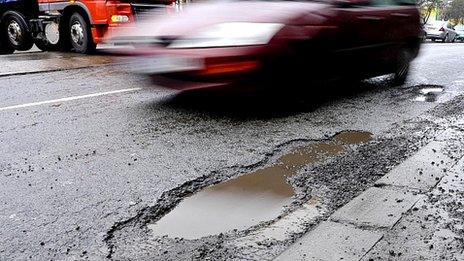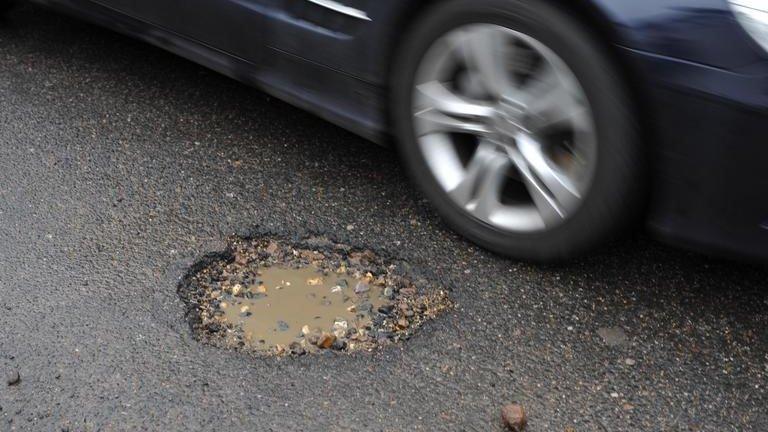Cardiff University research into the self-healing pothole
- Published
Marje Harris is frustrated by the potholes on an unadopted road in Swansea
Scientists are developing a self-healing material which could mean the end of the road for potholes.
Cardiff University is leading a three-year research project into a special form of concrete to reduce the need for road repairs.
The new material uses bacteria in microcapsules which burst out to plug gaps and cracks when water enters them.
The bacteria forms to produce a limestone seal.
Professor Bob Lark from Cardiff University's school of engineering said: "We can introduce fibres into the mixtures which limits cracks from being formed.
"But equally it's about saying once those cracks form - and when water gets into them and that freezes and expands it makes the cracks bigger - we can have a mechanism for knitting those cracks together."
Prof Lark said it was similar to someone cutting themselves while shaving, with the bleeding being part of the process as the skin repairs itself.
The material is being developed in conjunction with Bath and Cambridge scientists.

How does it work?

The three-year research project is looking at developing materials which last much longer
- Published3 April 2014

- Published13 January 2014

- Published8 September 2014

- Published20 June 2014

- Published20 June 2014